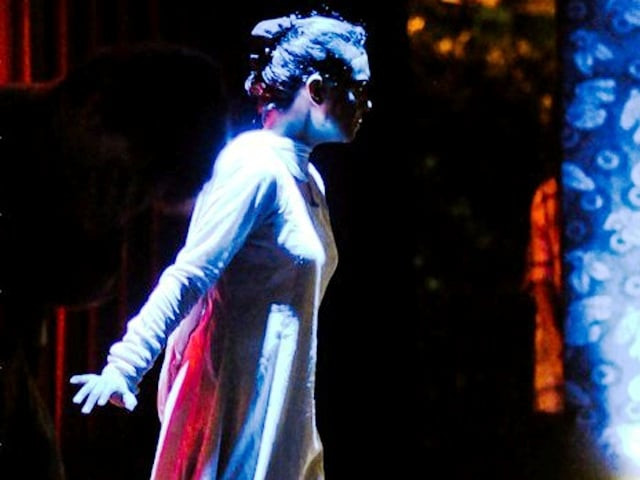Khamosh Kalam, a production of Laaltain – the IVS performing arts society – won the blue ribbon at the Youth Theatre Festival arranged by the Youth Affairs Ministry in collaboration with the Arts Council. The play is a mime that deals with the creative struggle of a writer as he crafts the perfect anecdote.
I spoke with the scriptwriters and directors, Zehra Nawab (Foundation year student, IVS) and Arsal Hasan (Second year student, IVS) who discuss the challenges of theatre art in Pakistan.
How did the idea for Khamosh Kalam come about?
Khamosh Kalam was derived from a question that often surfaced in our minds about how characters feel when the writer who created them destroys them by simply destroying his/her writing. It was this basic thought that primarily became the central idea of our play. We showed four simple stories penned by a writer and tried to explore the process through which he created all these different roles. In each act the audience sees the characters develop an existence of their own and a particular connection with the writer. But the writer holds them in brutal disregard by destroying his stories before they can reach a conclusion. It was interesting to delve in to how an artist has the responsibility to complete the creative process that he started for the sake of creative endeavor.
Why did you choose mime?
When we thought of writing a play, we began to think on the lines of putting together something which would be different. So, we decided to do a mime, because we thought that this was a mode of theatrical express was relatively unexplored by students at our school. This not only made it an interesting play to write, but an interesting play to watch due to its novelty.
What were some of the challenges you faced while writing the script?
The greatest challenge is writing the script itself! Khamosh Kalam had no dialogue and was a mime based on eastern classical music, so to articulate the mood of each scene and the personality of every character in order for it to be performed on stage was a cumbersome task. Depicting the role of each character was undoubtedly challenging. But we were working with such dedicated individuals that this process was made so much easier. Not only did each one of the actors understand their roles well, they took the liberty to develop their characters too which was absolutely great.
What, in your opinion, are the strengths of Khamosh Kalam?
Novelty - the interplay between the acting, the music and the lighting worked quite well for us. In a mime, it is primarily the expressions of the actors that takes the play forward, so we feel that our acting was one of our biggest strengths because to articulating emotions without using words is impossible to do if the expressions aren’t strong enough.
Do you feel theatre is a dying art in Pakistan?
Drama is reviving, not dying. It was dormant for a few years but right now it experiencing a revival. People are learning to appreciate it as an art form. No one would deny good entertainment, and since some excellent plays are being brought to theaters the drama culture is being enriched! It’s the responsibility of the theater groups and production houses to ensure that they sustain this revival and continue to bring people back to drama. The audience is there, they just need good quality theatrical productions to watch and enjoy.
What are your plans for Khamosh Kalam?
We plan to use Khamosh Kalam as our small contribution to sustain the revival of theater. After participating in the competition, we realized that ultimately it all narrows down to the plot and characterization. Lack of experience isn’t really a hurdle at all. So yes, Khamosh Kalam has allowed us to think bigger, and to never limit our scope because everything is attainable if we truly garner our efforts towards it.
One day, we’d like to make this mime our voice for an international audience. Khamosh Kalam a play without a language barrier, it’s a play which speaks about such a universal concept of creativity and it’s a play that we feel can be our contribution towards showing the world the wonderful artistic side of Pakistan.
Khamosh Kalam: The psychology of a writer
A conversation with Khamosh Kalam reveals the origins and challenges of of the play.



COMMENTS
Comments are moderated and generally will be posted if they are on-topic and not abusive.
For more information, please see our Comments FAQ